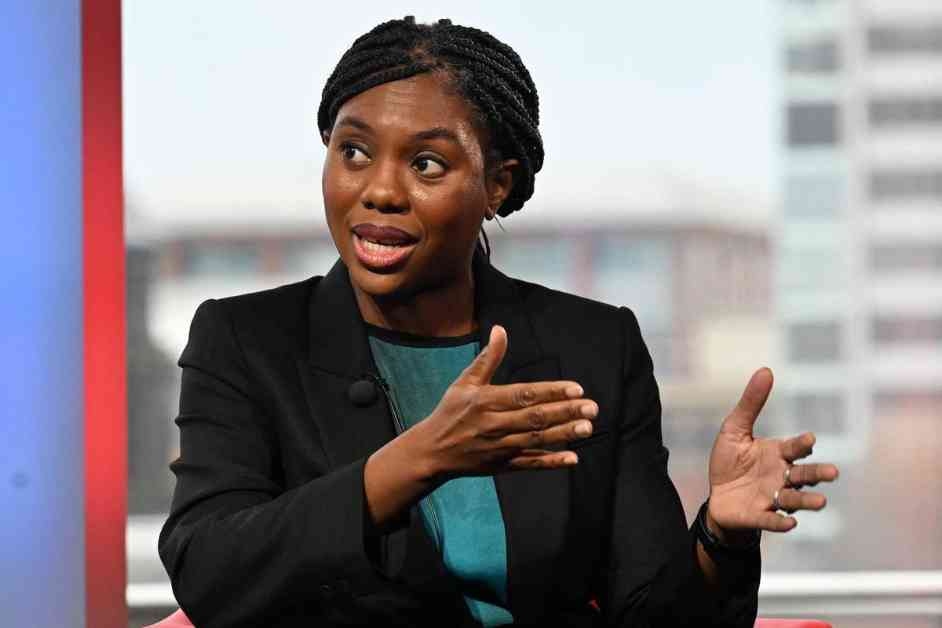Israel Praised for Hassan Nasrallah Assassination: Badenoch
The recent assassination of Hezbollah leader Hassan Nasrallah by Israel has sparked both praise and condemnation from political figures around the world. Kemi Badenoch, a Tory leadership hopeful, commended Israeli Prime Minister Benjamin Netanyahu for the attack, stating that it would lead to more peace in the Middle East. However, the killing has also raised concerns about escalating tensions in the region and the potential for retaliation from Hezbollah and its allies.
Support for Israel’s Actions
Kemi Badenoch’s support for Israel’s assassination of Hassan Nasrallah reflects a broader sentiment among some political leaders who view Hezbollah as a terrorist organization that poses a threat to stability in the Middle East. By targeting the leader of Hezbollah, Israel aims to weaken the group’s ability to carry out attacks and disrupt regional security. While some may view this approach as necessary for countering terrorism, others argue that it could further fuel conflict and violence in the region.
In her statements, Badenoch emphasized Israel’s right to defend itself against threats from groups like Hezbollah. She praised the country for demonstrating “moral clarity” in dealing with its enemies and called for continued support for Israel in the face of ongoing challenges. The assassination of Hassan Nasrallah represents a significant escalation in the conflict between Israel and Hezbollah, raising concerns about the potential for further violence and instability.
Challenges and Criticisms
Despite the praise from some quarters, Israel’s actions have also faced criticism and condemnation from other political leaders and international observers. The killing of Hassan Nasrallah has been condemned by Iran’s supreme leader Ayatollah Ali Khamenei, who vowed to avenge the assassination. This response underscores the complex web of alliances and rivalries that shape the dynamics of the Middle East and highlights the potential for further escalation and conflict in the region.
Critics of Israel’s actions argue that the assassination of Hassan Nasrallah will only serve to inflame tensions and deepen divisions in the region. They warn that targeting the leader of Hezbollah could lead to retaliatory attacks and further destabilize an already volatile situation. The ongoing airstrikes in Lebanon have resulted in a significant loss of civilian life, raising concerns about the humanitarian impact of the conflict and the need for a peaceful resolution to the crisis.
International Response and Diplomatic Efforts
The international community has been closely monitoring the situation in the Middle East and working to de-escalate tensions between Israel and its adversaries. Calls for restraint and diplomacy have been issued by world leaders, urging all parties to seek peaceful solutions to the ongoing conflict. The United Nations and other international organizations have called for an end to the violence and a return to negotiations to address the root causes of the crisis.
Diplomatic efforts are underway to address the escalating situation in the Middle East and prevent further violence. The UK government has urged British citizens in Lebanon to leave the country amid concerns about the deteriorating security situation. Efforts are also being made to engage with all parties involved in the conflict and find a path towards a peaceful resolution that respects the rights and interests of all stakeholders.
In conclusion, the assassination of Hassan Nasrallah by Israel has sparked a range of reactions and responses from political leaders and observers around the world. While some have praised Israel’s actions as necessary for countering terrorism and ensuring regional security, others have raised concerns about the potential for further violence and instability. The ongoing conflict in the Middle East underscores the complex challenges facing the region and the need for sustained diplomatic efforts to address the root causes of the crisis.












